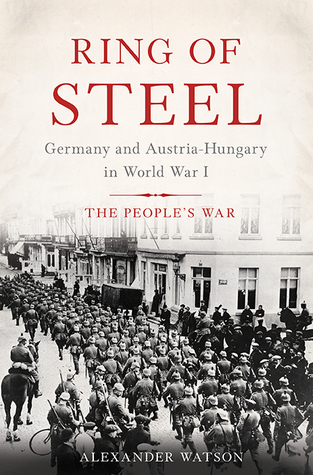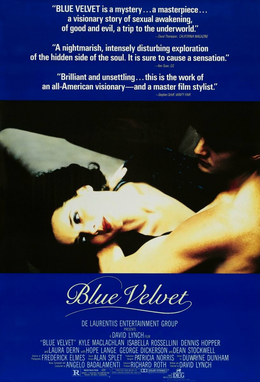
Title: Ring of Steel
Rating: 4 Stars
As I wrote a couple of days ago, I’ve been reading Ring of Steel, a World War I history written from the point of view of the Germans and the Austro-Hungarians. As I was reading it, I was comparing it to The Rising Sun, the World War II history written from the point of view of the Japanese. Did it rise to that level? Well, not quite, but still it was pretty good.
One reason why I didn’t enjoy Ring of Steel as much could very well be the nature of World War I. Even though the war took place over more than a four year period, it was only in the beginning months and the ending months that any significant movement really took place (especially in the Western Front).
Don’t get me wrong, there was major actions that resulted in hundreds of thousands of casualties (like Verdun, the Somme, and the Brusilov offensive), but despite mass expenditure of men and material, it didn’t really change the strategic position much.
It really did become a war of attrition and will. Would the British blockade of the Central Powers (along with their own incompetence in food management) starve them out? Would Germany’s U-boat open warfare starve Great Britain? Would all of the territory destroyed or lost break the will of France? As various national separatists movements (eg Pole, Czech, Slovak, Ruthene (ie Ukrainian)) began to rise up, would it break up the Austro-Hungarian empire? Which nations would run out of men willing to die first?
In 1918, it became a foot race. With the Russian revolution bringing about the disastrous (at least to the Russians) Brest-Litovsk armistice, the Germans could concentrate their military might upon the Western front. On the other hand, with the US declaration of war, the Allied forces were preparing to receive a couple of million more men and virtually unlimited material.
The Germans gambled it all on one more push. Convincing the soldiers that victory was now finally within their reach, they had one last spring offensive. Although, from a territory point of view, it was wildly successful, Watson’s opinion is that the offensive was not executed with any strategic objectives in mind. The mastermind behind it, Ludendorff, thought that an overwhelming force alone would just destroy the Allied powers will to fight.
Although battered, the Allied forces did not collapse. As they have all along for the previous four years, they took the brunt, retreated, regrouped, and fought back. The German army, having their dreams of ending the war with one final push turn into a nightmare in front them, effectively collapsed. It was the German army that lost their will to fight. Impregnable positions that they’d held for years fell. The impervious Hindenburg line proved to be quite pervious.
Ludendorff, knowing that his army was lost, had something close to a nervous breakdown. After for months repeating the line that victory was in his grasp, he went to the recently formed civilian government and told them that an immediate armistice was required to prevent a complete collapse of the German state. The German government, shocked, took immediate steps. A couple of weeks later, Ludendorff had a change of heart and told the government that he wanted to still keep fighting. Having lost their confidence in him, they had him removed. This change of heart is what led Ludendorff, years later, to claim that the civilian government had betrayed the German people (the knife in the back). It was clear that the German army was defeated and the only question remaining was how many more people needed to die for that fact to be acknowledged.
That’s kind of the war story. As I said, this book didn’t really focus so much on specific battles as much as on the government and the people of the Central Powers (specifically, Germany and Austria-Hungary). Fair warning, this book is not for the faint of heart. It’s around 600 hundred pages of inside Central European baseball. Due to many factors, Central Europe is a bewildering stew of territory, nationalities, and budding nationalities. You’re going to read about a lot of places like Galicia, Bohemia, the Congress Poland, Moravia, and Bukovina. It’s a lot to wade through. In so doing, I was rewarded by learning many new things about World War I, as well as Central Europe itself.
Here are some of the random facts that I learned.
There was an idea in war known as elan. This can be thought of as the fighting spirit. All countries, at the start of the war, seemed to think that their soldiers possessed this spirit in abundance compared to other nations. This led to the full on frontal attacks on another line. The thinking was that the defenders would be terrified by the oncoming warriors and would take to their heels in panic. This might have happened in earlier times, but in the time of machine guns and mortars, all it meant now was that thousands of soldiers would die. Elan was one of the first casualties of the war, at least among the soldiers that were actually doing the fighting. Generals far behind the lines still seemed to think otherwise.
The area of what we now think of as Poland, Ukraine, and Belarus have been struggling for national recognition since well before World War I. Some nationalities saw the war as an opportunity to gain their freedom. Interesting, the Tsar specifically refused to recognize Ukraine because he thought that they were Russian (in fact, called them little Russians). Isn’t it interesting (or tragic really) that over one hundred years later, the modern day Tsar of Russia still refuses to recognize the existence of an independent Ukrainian nation?
The one truly bad decision of the war was Germany’s decision to unleash open submarine warfare. It really had no chance to work. They didn’t have enough U-boats. A lot of shipping was sunk, but once the British organized themselves into destroyer supported convoys, the rate of loss plummeted. Even at the height of the crisis, the British were able to come up with alternatives to the goods and foods that they were missing. They were never on the cusp of starvation. The only end result of open submarine warfare was the entrance of the US into the war. The Germans knew that this was a likely outcome, but thought that it would take a long time for the Americans to ramp up their peacetime army and, in the meantime, the British would starve and be forced to capitulate. Once the Americans started arriving on shore, it was pretty much game over.
Another fact that I wasn’t aware of was that, even though the armistice was in negotiation and it was clear that the war was over, the German navy, who had been bottled up and rendered impotent over the course of the war, decided to head out for one last major engagement. Again, everyone knew the war was over. The German naval officers knew that as well. They just wanted to have one battle to prove their worth so that, after the war, they could justify a naval future for themselves.
Well, it didn’t pay off. The battle didn’t happen. The navy dispersed its fleets to separate locations in Germany. This proved to be a horrible mistake. The sailors, knowing what their officers were going to do, rose up in revolt. Their revolt spread in the various locations that the navy had been dispersed. This led to a general uprising that ultimately led to the abdication of the Kaiser. The navy’s decision for this one last pointless engagement was one of the main contributing factors to the collapse of the German empire.
Austria-Hungary comes off as just grossly incompetent at all levels. First of all, it was Austria-Hungary that triggered the global war by insisting upon throwing its weight around by attempting to punish Serbia. Even though it was a polyglot of people, languages, and customs, people initially did rally to the Emperor. However, much of that dissipated when the government, fearful of uprisings, threw many local leaders (politicians and priests) into jail. Hungary had much more agriculture than Austria but refused to share. Their military leadership was strategically incompetent. They had a chance to negotiate a separate peace with the Allied Powers with even some possible gains in territory but decided to go down with the German ship. After the death of the beloved Emperor, the new Emperor, although well meaning, was indecisive and feckless.
Despite the fact that very little of the war was actually fought in Germany, the Germans believed that there were fighting a war of defense. They just couldn’t understand how they were losing the public relations campaign. The Germans were branded with the label of brutality. Due to their invasion of neutral Belgium, atrocities that were committed in Belgium, their use of slave labor, and their use of unrestricted submarine warfare, this reputation is deserved. Before we pile on too much, it has to be acknowledged that the Allied Powers were doing much the same. The treatment of the people in lands conquered by Russia was abysmal. The British embargo of all ships coming to the Central Powers was designed specifically to starve their population.
OK, once again I’ve written too much. Although dense and occasionally difficult to wade through, I did find that the Ring of Steel offered a perspective on World War I that was new to me.





